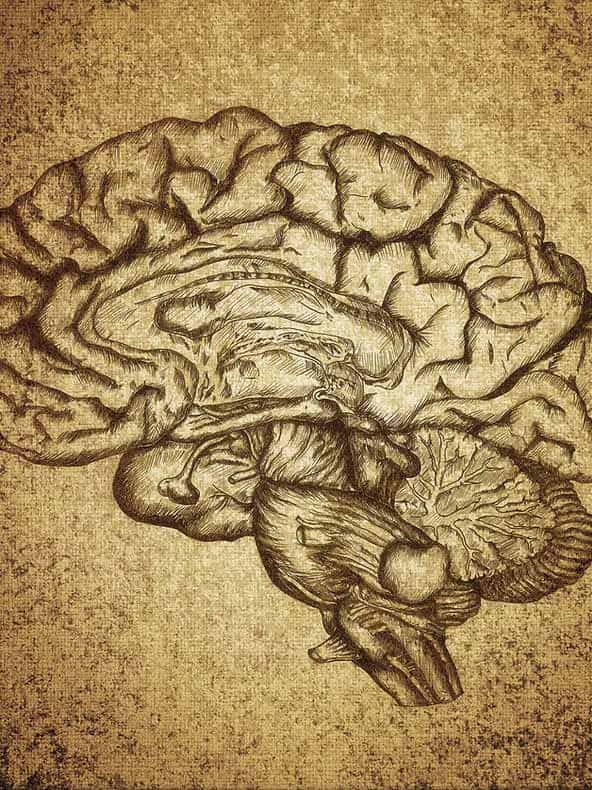Mental Health
One of the most frequent concerns of patients coming in to the office is anxiety. Having dealt with anxiety myself throughout my life I can completely relate.
Anti-depressants are among one of the most prescribed meds in America. They work on your uptake of serotonin in your body. 90 percent of your serotonin is made in your gut.

The number of people suffering from mild, moderate, and severe anxiety has sky-rocketed in recent years.
Per the Anxiety and Depression Association of America: “Anxiety disorders are the most common mental illness in the U.S., affected 40 million adults in the United states 18 and older, or 18.1% of the population every year.” One of the most disturbing part about this is that it’s affecting our kids as well.
I refer back to a beautiful article by Harvard Health on a regular basis as they point out how the foods you eat and what’s in the fuel makes all the difference. What you eat directly affects the structure and function of your brain and ultimately your mood.
“Like an expensive car, your brain functions best when it gets only premium fuel. Eating high-quality foods that contain lots of vitamins, minerals, and antioxidants nourishes the brain and protects it from oxidative stress — the “waste” (free radicals) produced when the body uses oxygen, which can damage cells.
Serotonin is a neurotransmitter that helps regulate sleep and appetite, mediate moods, and inhibit pain. Since about 90% of your serotonin is produced in your gastrointestinal tract, and your gastrointestinal tract is lined with a hundred million nerve cells, or neurons, it makes sense that the inner workings of your digestive system don’t just help you digest food, but also guide your emotions. What’s more, the function of these neurons — and the production of neurotransmitters like serotonin — is highly influenced by the billions of “good” bacteria that make up your intestinal microbiome. These bacteria play an essential role in your health. They protect the lining of your intestines and ensure they provide a strong barrier against toxins and “bad” bacteria; they limit inflammation; they improve how well you absorb nutrients from your food; and they activate neural pathways that travel directly between the gut and the brain.”
TOO MUCH SCREEN TIME
This is by far the easiest and cheapest thing for you to do to influence your mental health. For kids, anxiety, depression and loneliness are often the result of too much screen time. After an hour or screen time per day was linked to progressively lower psychological well- being. High users of screens were also significantly more likely to have been diagnosed with anxiety or depression.
Today’s adults have been estimated to spend more than 10 hours a day in front of screens. Because the activity is sedentary, this exposure has been linked, in part, to higher obesity rates which can lead to diabetes and sleep problems. One solution could be to get a standing desk.
San Diego State University professor of psychology and author Dr. Jean M. Twenge reports the more time teens spend on their phones the more likely they are to report symptoms of depression. Teens who spend more than 3 hours a day on their phones also have higher suicide rates, and get less sleep than they need…which can trigger more anxiety (5).
MOVE YOUR BODY!
Lacing up your sneakers and getting out and moving may be the single best nonmedical solution we have for preventing and treating anxiety.
Harvard psychiatrists have studied the effects of exercise on the brain, and witnesses firsthand how physical activity affects their patients. A simple bike ride, dance class, or even a brisk walk can be a powerful tool for those suffering from chronic anxiety. Activities like these also help people who are feeling overly nervous and anxious about an upcoming test, a big presentation, or an important meeting.
How does exercise help ease anxiety?
- Engaging in exercise diverts you from the very thing you are anxious about.
- Moving your body decreases muscle tension, lowering the body’s contribution to feeling anxious.
- Getting your heart rate up changes brain chemistry, increasing the availability of important anti-anxiety neurochemicals, including serotonin, gamma aminobutyric acid (GABA), brain-derived neurotrophic factor (BDNF), and endocannabinoids.
- Exercise activates frontal regions of the brain responsible for executive function, which helps control the amygdala, our reacting system to real or imagined threats to our survival.
- Exercising regularly builds up resources that bolster resilience against stormy emotions.
NOT ENOUGH SLEEP
No sleep is a symptom of anxiety and depression and a direct cause.
Focus on your nighttime routine. Make sure you stay away from screens past 7pm.
Do something relaxing like reading or meditation right before bed so you can try and turn off your mind.
I will often recommend the Headspace App Sleep pack to get started on a regimen for meditation.
Getting to bed early will give you more time and space to fall asleep without worrying you wont fall asleep fast enough.
BE HONEST WITH YOURSELF ABOUT WHAT YOU NEED
Check in with yourself. How you feel in the morning? Or at the end of the day? Were there certain things you did or people you spoke with that may have triggered your anxiety?
Are you neglecting your self-care…pouring yourself out completely everyday without recharging? I see this a lot in the moms that I have in the office.
Is it time to take a break from the news or social media? How do you feel when you check in to the TV or these sites?
Do you need to ask for help? Maybe from a friend, or at home, or at work?
If you really can’t decide, please consider enlisting with a counselor. Stress will never not be there, but how you handle your stressors can change. I personally believe that everyone can use someone who can have an objective view of a situation for a different perspective.
FOCUS ON SELF CARE
When is the last day you spent doing nothing? With no agenda? Or even half a day? Are you engaging in stress-reducing activities (excluding TV or screen time!). When did you last spend time in nature? When is the last time you participated in things that you enjoy? The list goes on and on.
GET YOUR LABS AND THYROID CHECKED
Deficiencies in certain vitamins and minerals with anxiety and depression are SO COMMON. Make sure you have your doctor look at your Vitamin D, Vitamin B12, zinc, magnesium, serotonin among other blood markers.
Hypo and hyperthyroidism are very prevalent autoimmune illnesses today. In fact, they are the most frequent cases that I see in the office. Most conventional Dr.’s only test for TSH.
Thyroid disease does have a genetic predisposition and can often be triggered from the stress of a major life event, like a birth, death, or loss of a job. One of its symptoms is anxiety. Recognizing its symptoms and getting the right diagnosis is key.
To get a true diagnosis find a functional medicine doctor to run a comprehensive thyroid panel which includes:
- TSH: it provides information on how the thyroid and pituitary gland that governs the thyroid are communicating
- Free T3: The more accurate, usable form of your thyroid hormone.
- Free T4: T4 and T3 hormones are made in response to TSH with T4 being the main thyroid hormone circulating in the blood. These hormones can be free or bound to different proteins in the blood and free T4 is the unbound form. It is considered to be more accurate than testing T4 alone. T4 must be converted into T3, so the two labs should always be checked together.
- Reverse T3: Inactive and unusable form of the T3 hormone.
- Thyroid Peroxidase Antibodies: This test is to check for autoimmune disease of the thyroid known as Hashimoto’s
- Thyroglobulin Antibodies: This second autoimmune panel also tests for Hashimoto’s.
REFERENCES
https://www.health.harvard.edu/blog/can-exercise-help-treat-anxiety-2019102418096
https://www.health.harvard.edu/blog/nutritional-psychiatry-your-brain-on-food-201511168626


